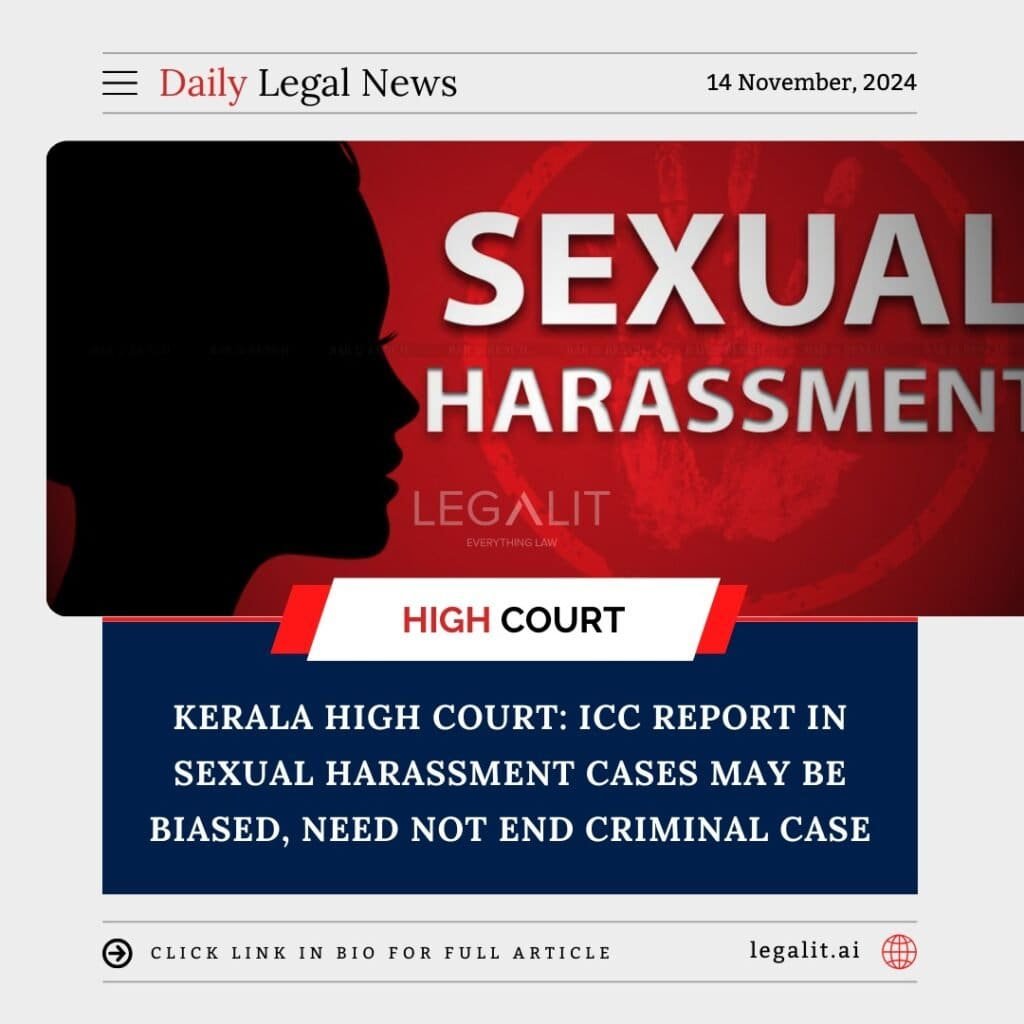
The Kerala High Court recently observed that reports from the Internal Complaints Committee (ICC) in sexual harassment cases could often be biased, and such reports should not automatically lead to the end of a criminal case. The court emphasized that while the ICC’s findings are important, they should not overshadow the criminal investigation, which must be pursued independently and based on the facts and evidence.
Background:
The case at hand involved a sexual harassment complaint, which was initially examined by the ICC of an organization. The committee’s report, however, was challenged for potentially being biased, and the complainant sought the continuation of the criminal proceedings. The court’s ruling came in response to concerns that ICC reports could unfairly influence the course of justice and prevent a fair investigation under the criminal law.
Court’s Rationale:
The Kerala High Court highlighted that ICC reports, although they play a crucial role in workplace sexual harassment cases, are not the final word on the issue. It clarified that criminal cases should not be dismissed solely based on the findings of an ICC report, especially if there is doubt about the impartiality or thoroughness of the report. The court underscored that a criminal trial is an independent process, and any potential biases in an internal inquiry must be taken into account before relying on its findings in criminal cases.
Existing Measures:
The decision reaffirms the importance of maintaining a clear distinction between internal workplace procedures and criminal law processes. Under the Sexual Harassment of Women at Workplace (Prevention, Prohibition and Redressal) Act, 2013, an ICC is mandated to conduct inquiries, but it does not override or replace the judicial system, which has its own standards for investigating and adjudicating criminal cases.
Conclusion:
The Kerala High Court’s ruling serves as an important reminder that while ICC reports are essential for addressing workplace sexual harassment, they should not serve as conclusive evidence in criminal matters. It also stresses the need for ensuring fairness and impartiality in such reports, and reinforces the principle that criminal proceedings must be allowed to proceed independently of any internal organizational findings.